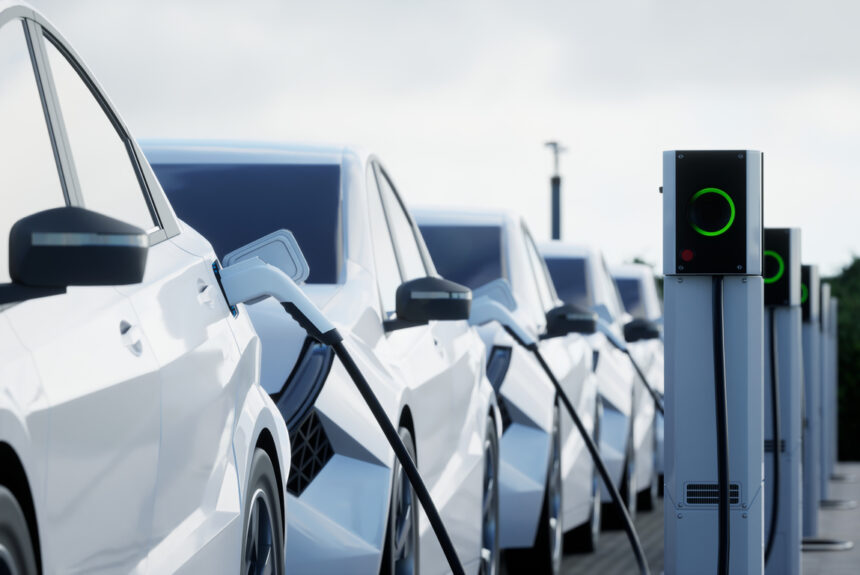In March, the Biden administration finalized the most stringent regulations for cars ever, which will effectively impose an electric vehicle (EV) mandate and reshape the automobile industry from the top down. A government-forced transition to EVs will be costly for consumers and businesses alike. Rather than imposing draconian measures, lawmakers should empower consumers and the private sector to bring more environmentally-friendly technology on the road.
>>>READ: An Open Letter to the EV Industry
There are several reasons why Americans are hesitant to buy an EV. Chief among them is cost. A 2024 report from Kelley Blue Book found that the average price of an EV was around $55,000, compared to about $45,000 for a new gas-powered car. Despite federal incentives aimed at increasing EV adoption, wealthy families, who would likely buy an EV anyway, primarily enjoy the subsidies and tax credits. The top income quintile in the U.S. has received more than 80% of all EV tax credits and the top 5% has received about 50% according to a 2024 study from the Energy Institute at Haas. While the Inflation Reduction Act (IRA) put income limits on who qualifies for the generous taxpayer-funded subsidy, the cap is still very high ($300,000 for jointly filing couples).
Another challenge is the current inadequacy of the charging infrastructure, which has hurt consumer attitudes toward the technology. A recent poll conducted by AAA found that only 18% of U.S. adults say they would be “very likely” or “likely” to buy a new or used EV. In addition to the concerns over higher upfront costs, the study found that the other main hesitations were range anxiety and a lack of convenient charging. Despite doling out $7.5 billion for EV charging infrastructure in the IRA, the federal government has only built eight chargers in the 2.5 years since Congress passed the act.
In contrast, private companies have made more progress in developing EV charging infrastructure. For instance, Tesla’s Supercharger network has rapidly expanded without dependence on federal funding. Yes, Tesla has been the beneficiary of some federal funding totaling $28.8 million for 69 sites, but this is just a drop in the bucket compared to the more than 2,000 Supercharger sites and Tesla’s plans to spend more than $500 million on expanding the Supercharger network this year alone. The amount of Superchargers has more than tripled in 5 years. Given Tesla’s ability to build out charging infrastructure with private investment, it is all the more reason to eliminate the subsidy.
The rush to electrify transportation also comes at a time when the electrical grid is under increasing strain. Rising demand, fueled by the rise of AI technologies and hot weather are having regulators warn about possible blackouts this summer. Adding more EVs to the grid without sufficiently increasing generation will only make matters worse.
The push for widespread EV adoption also brings to light challenges regarding the supply of critical minerals. For instance, a study from the International Energy Forum found that over the next several decades as many as six new copper mines must come online annually to meet electrification needs and about 40% of their production will be required for grid upgrades to support EVs. The problem, however, is that it takes an average of 20 years after discovering a copper mineral deposit to get a permit to open a mine.
>>>READ: Consumers Should Decide What Car is Best for Them
Additionally, the U.S. is heavily reliant on China for the processing of these critical minerals. China controls more than 80% of the global processing capacity for rare earth elements. This over-reliance on an adversary presents a risk to the U.S. supply chain. Policymakers should reduce regulatory burdens to increase domestic mining and friend-shoring of key minerals.
While EVs have a role to play in our transportation future, the Biden Administration’s approach via a mandate is a classic case of overreach. It undermines consumer choice, underestimates the challenges of EV adoption, and places undue strain on an already overburdened electrical grid. The market should ultimately determine how many EVs are on the road.
A more pragmatic approach that encourages innovation and competition would be far more effective in bringing more EVs online. It would be wise for Congress to scrap fuel economy mandates altogether and empower free market drive EV adoption organically.
Dan Selby is a senior at NYU and a Summer Intern at C3 Solutions.
The views and opinions expressed are those of the author’s and do not necessarily reflect the official policy or position of C3.
